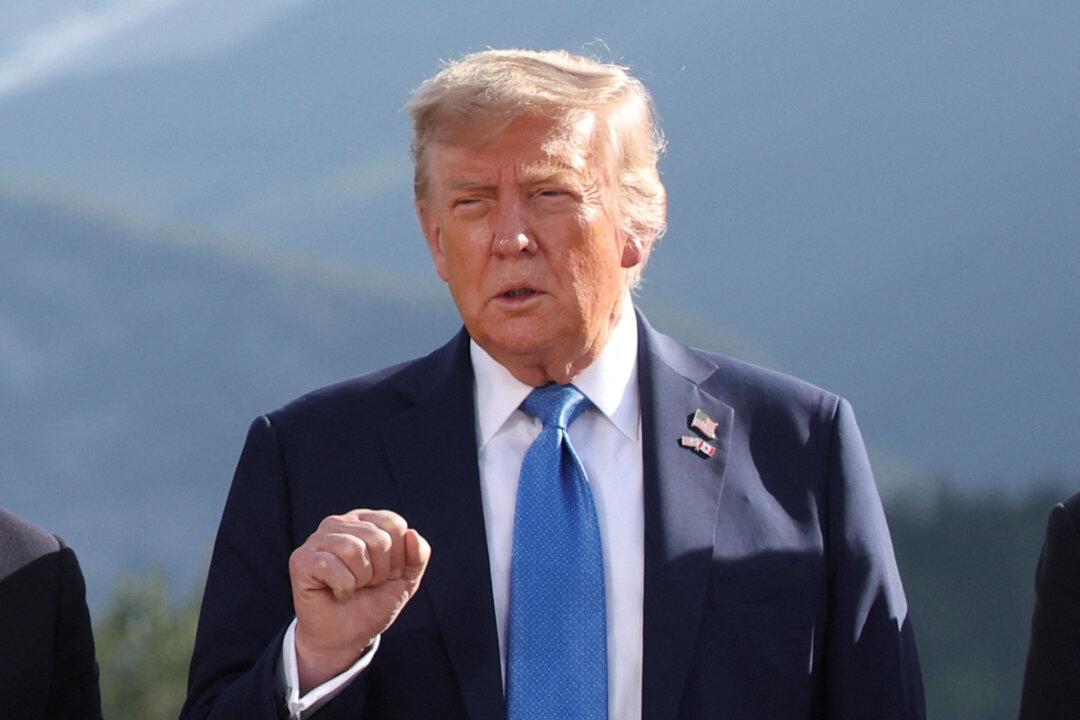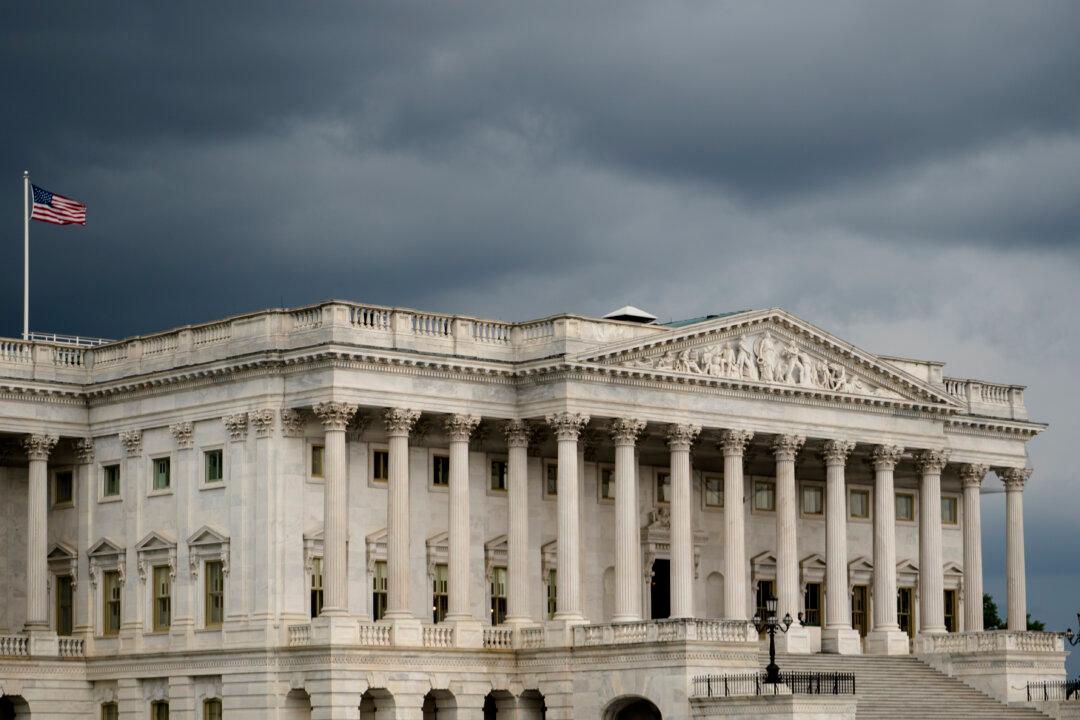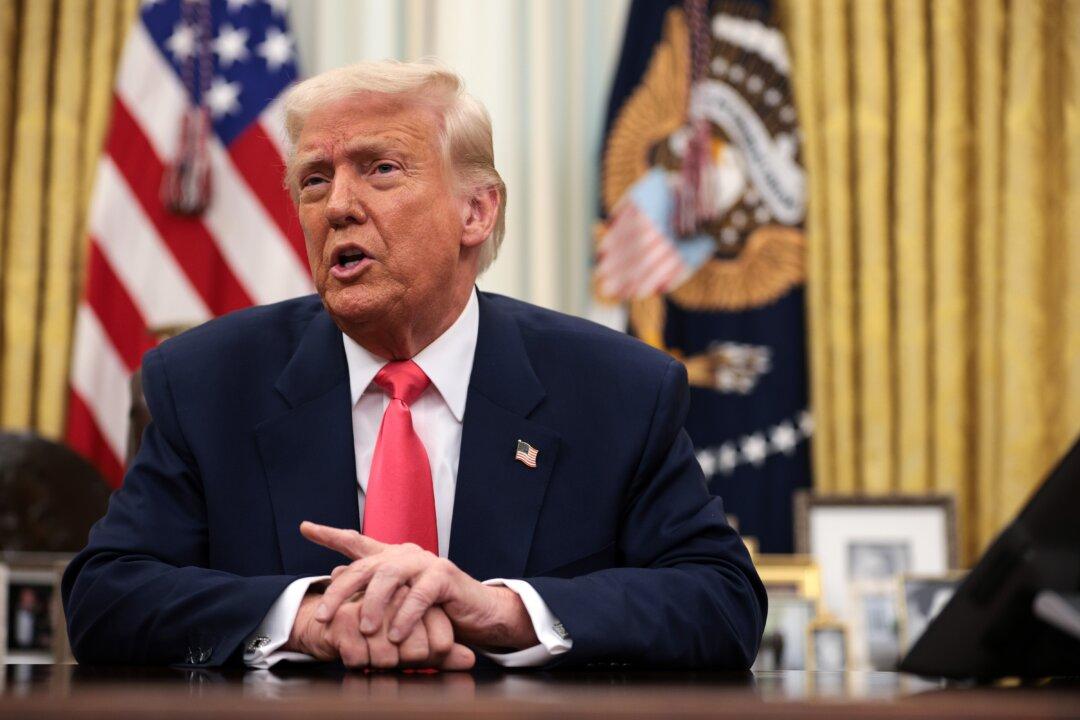President Donald Trump said that political commentator Tucker Carlson called him to apologize for some of the critical comments he made on the ongoing Israel–Iran conflict.
“Tucker’s a good guy, he called and apologized the other day because he thought he said things that were too strong, and I appreciated that,” Trump said.
Carlson, a former Fox News host who left the network and is now independent, has been strongly pushing for the United States military to remain out of Israel’s conflict with Iran.
On June 13, Israel bombed several military and civilian targets in Iran, saying the move was a pre-emptive action to head off what Israel said was an imminent threat of Iran gaining nuclear capabilities. Specifically, Israeli Prime Minister Benjamin Netanyahu has said that the Persian state could soon produce its first nuclear weapons.
Since then, Trump has been ambivalent about the United States’ intentions regarding the conflict, but has said consistently that Iran cannot be allowed to obtain a nuclear weapon.
Some of his conservative and Republican allies—Cruz, Vice President JD Vance, Laura Loomer, Mark Levin, and Sen. Tom Cotton (R-Ark.)—have been supportive of direct U.S. involvement in the conflict in order to eliminate any possibility of a nuclear threat.
Others in support of Trump’s Make America Great Again (MAGA) agenda—including Carlson, Steve Bannon, Rep. Marjorie Taylor Greene (R-Ga.), and others—have pushed back against direct intervention in the region, saying that to do so would be a betrayal of Trump’s 2024 campaign promises and the principles of the America First movement.
When asked about the divides, Trump seemed unfazed.
“No, my supporters are for me. My supporters are for me. My supporters are America First. They make America great again. My supporters don’t want to see Iran having a nuclear weapon,” Trump told reporters in the White House.
As Republicans continue to see steep divides on how to move forward on the threat, the world is waiting with bated breath for Trump’s next move, with concerns about triggering an escalation.
Pro-Intervention
Those supporting U.S. involvement in Iran have tied their argument to a central concern: the threat of a nuclear-armed Iran.That stockpile of over 400 kilograms of enriched uranium brings it worryingly close to the 90 percent threshold needed to build nuclear weapons, and far above the 20 percent usually needed for civilian purposes. Though that still puts them below weapons-grade levels, it suggests that the Islamic revolutionary state could be just days or weeks away from a nuclear bomb.
Trump and his allies on the issue—as well as some of his opponents—have said that Iran obtaining a nuclear weapon would be unacceptable, as many fear that it would quickly be deployed against Israel or even America.
In a post on X, Cotton wrote, “The Iranian regime has killed thousands of Americans, held Americans hostage, and regularly chants ‘Death to America.’ We cannot let these terrorists develop a nuclear weapon.”
Sen. Lindsey Graham (R-S.C.) is also among those pushing for the United States to quickly intervene if necessary.
“If diplomacy fails, President Trump ... help Israel finish the job,” Graham said. “Give them bombs, fly with them if necessary.”
Vance, who is himself known for a generally non-interventionist approach to foreign policy, indicated that he had concerns about the prospect of Iran getting a nuclear weapon, urging MAGA supporters to trust Trump.
“I have yet to see a single good argument for why Iran needed to enrich uranium well above the threshold for civilian use,” Vance said.
Anti-Intervention
Aside from Carlson, many others among the MAGA base have expressed concerns about getting too deeply involved in the conflict.Many of these critics say that involvement would betray the non-interventionist principles on which Trump campaigned in 2024, with several drawing parallels to President George W. Bush’s invasion of Iraq in pursuit of weapons of mass destruction that were ultimately never discovered.
Likewise, many critics of U.S. involvement have noted that past U.S. assessments don’t align with the IAEA—including an assessment by Director of National Intelligence Tulsi Gabbard less than 90 days ago.
Greene, who’s long been one of Trump’s fiercest allies in the House, was critical of Trump’s description of Carlson as “kooky.”
“That’s not kooky. That’s what millions of Americans voted for. It’s what we believe is America First.”
Bannon, a former White House adviser, said he “support[s] Israel fully” but expressed concerns about Israel “[making] unilateral moves assuming America will fight their battles.”
“That’s when it gets dangerous,” Bannon said. “We must make decisions that put America First.”







